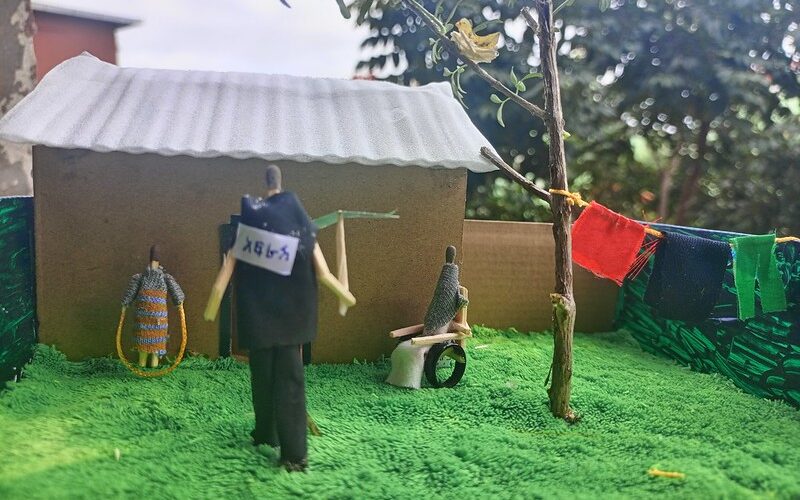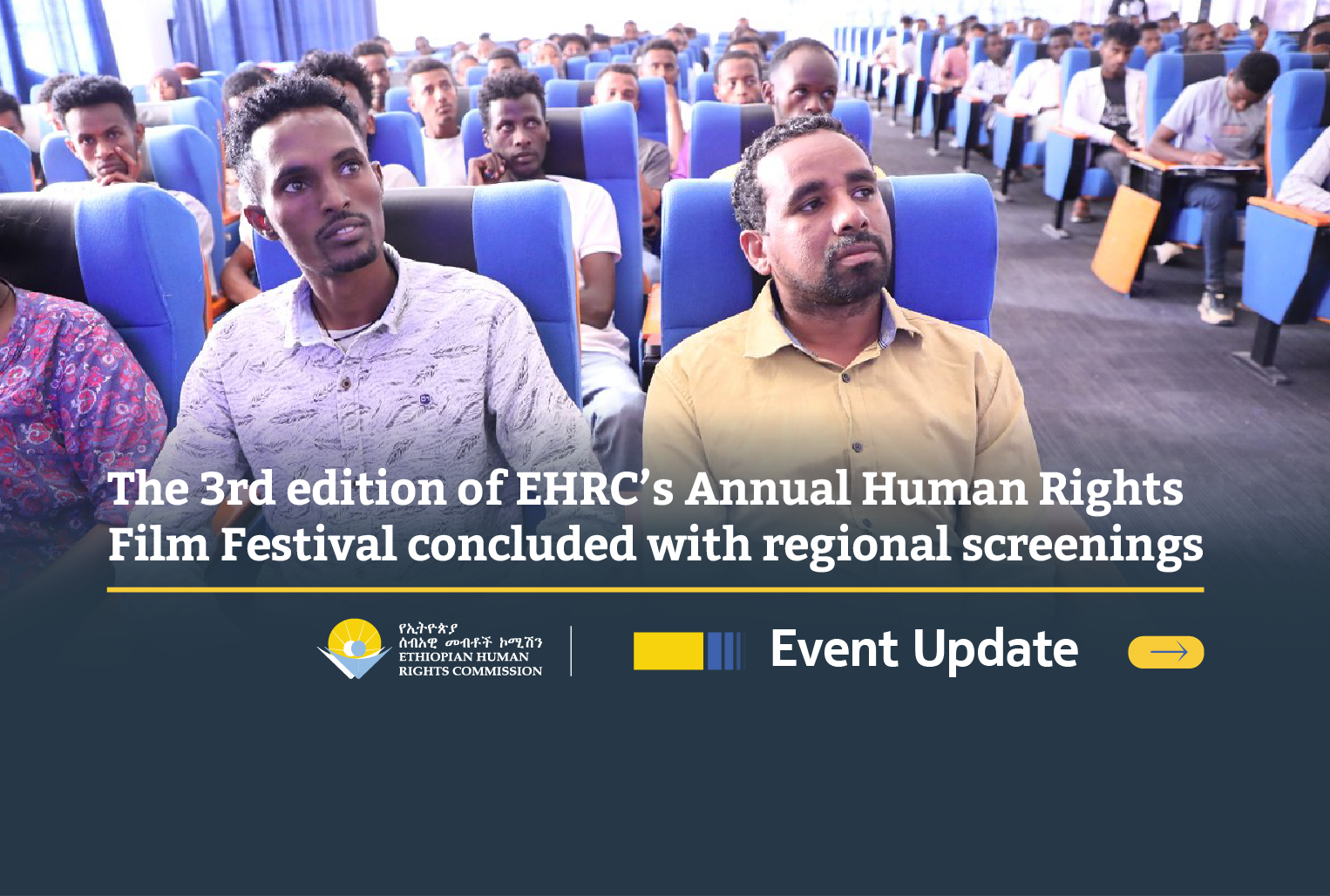The Ethiopian Human Rights Commission (EHRC) recently concluded its 3rd Annual Human Rights Film Festival, a significant event started in 2021 to mark International Human Rights Day on December 10. The festival aims to harness the power of art to advance EHRC’s vision of a “human rights culture in Ethiopia.” It serves as a valuable platform for artists, national and international institutions and diverse communities to come together and advocate for human rights.
The 3rd edition held special significance as it marked the 75th anniversary of the Universal Declaration of Human Rights, the 20th anniversary of the Protocol on the Rights of Women in Africa (Maputo Protocol in short) and the 75th anniversary of the United Nations Convention on the Prevention and Punishment of the Crime of Genocide.
To engage diverse perspectives and artistic expressions, EHRC introduced a first-ever short film and photography competition for this edition. The themes of the competition focused on the right to life and adequate housing, which were highlighted as key concerns in the Commission’s Second Annual Ethiopia Human Rights Situation Report.
The photography competition centered on the right to adequate housing, welcoming entries from both amateurs and professionals. Simultaneously, the short film competition, dedicated to the right to life, featured two categories: a mobile short film (up to 9 minutes) opens to both amateurs and professionals, and a second category for documentary or fictional work (up to 25 minutes) open exclusively to professionals. The competition attracted over 160 participants, showcasing a rich tapestry of creative responses.
The festival commenced on December 11, 2023 with an award ceremony of winners in Addis Ababa, featuring the poignant film “Doka,” as the center of the event. The film written by Beza Hailu, directed by Kidist Yilma and produced by the artist who is also the lead actress Mahder Assefa, served as a compelling call for peace and a “new way” devoid of hatred, violence and conflict.
Following the Addis Ababa screening, the festival embarked on a journey across seven universities in seven regions, reaching audiences in Assosa, Bahir Dar, Hawassa, Gambella, Jigjiga, Jimma, Mekelle, and Samara. The regional screenings provided a platform for audiences to engage on human rights issues, fostering dialogue and understanding.

The event was made possible through the collaboration of international and local partners of film and art experts. The Commission’s national and international partners who participate through funding and other forms of technical support are also invaluable to the festival’s success. Some of these partners include British Embassy, Royal Danish Embassy, Danish Institute for Human Rights, European Union, German Embassy, Embassy of Ireland, Royal Norwegian Embassy and Embassy of Spain. Government and non-government institutions, along with universities also contributed immensely to the success of the 3rd edition of the Annual Human Rights Film Festival.
Dr. Daniel Bekele, EHRC’s Chief Commissioner, underscored the significance of Human Rights Day and the enduring values enshrined in the Universal Declaration of Human Rights. He emphasized, “Human rights are essential for sustainable peace, unity, and economic development,” highlighting that the festival’s impact is magnified by the shared voices of individuals from all walks of life.
Looking ahead, the 4th Annual Human Rights Film Festival promises an even more diverse and impactful experience. With an expanded format and new categories, the festival is poised to continue its journey of raising awareness, fostering dialogue, and celebrating the power of art in advancing human rights.
